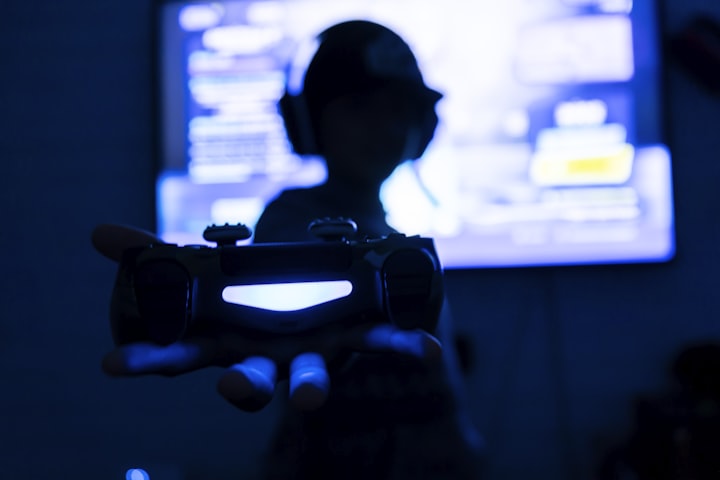This Disorder May Be Affecting Someone You Love And You Wouldn’t Even Know It
Video Game Addiction: How it’s impacting the brain and how to cure it.

Gamers worldwide spend billions of collective hours every week fully engaged in virtual play. Video games have become a popular form of entertainment for people of all ages, races, genders, and social classes. Because of their widespread use, there have been numerous studies examining video games and how they affect the brain, especially in children.
Video game addiction, also known as, "internet gaming disorder" is an anomaly that has been highly investigated by scientists. Evidence suggests that video games have positive and negative effects on the human brain.
Video games affect the most important areas of the brain, including, the prefrontal cortex, hippocampus, and amygdala, the areas responsible for learning and remembering.
Studies indicate that video game players display improvements in several functioning areas, including advanced focus, selective attention, and increased ability to identify visual and spatial relationships among objects.
For children, video games are more than just a fun activity. There are several benefits to moderate gaming, such as enhanced accuracy in visual observation, better finger dexterity, and improved memory.
Tips To Ensure A Kid-Friendly Gaming Experience:
1. Be sure the game does not contain harmful scenes or violence related to civilians.
2. Limit gameplay - children should only play video games once or twice a week, and the duration of play should not exceed 30-90 minutes.
3. Play together! Make gaming fun for the whole family so you can monitor your child’s use.
On the contrary, high attachment gaming could have damaging effects on a child’s development and behavior. Similar to any other addiction, excessive play can have a significantly negative impact on brain structure and functioning.
Video games produce the hormone dopamine, which makes a person vulnerable to addiction. In gaming addicts, changes in the neural reward system, the area of the brain associated with motivation and pleasure, cause cravings triggered by game-related cues.
What Causes Video Game Addiction?
The underlying reasons behind addiction are endless. Whether it be lived trauma, loneliness, boredom, social isolation, or family problems that they want to push aside, many addicts are seeking an escape from these issues. Video games provide an exciting alternative to dealing with real-life troubles.
Signs Of Gaming Addiction:
1. Feeling anxious and tense if unable to play.
2. Excessive thinking about what has been achieved in the game, or contemplating what they will do the next time they play.
3. Lying to friends and family about how much they are spending on video games.
4. Isolation and introversion.
5. Preference for playing rather than engaging in social and family relationships.
6. Loss of interest in hobbies.
7. Fatigue and headaches.
8. Increased pain in the wrist and fingers.
9. Neglecting health and personal hygiene.
10. A lack of concentration in studies.
Is There A Cure For Video Game Addiction?
While there is no cure for addiction, a supportive family environment, and positive dialogue can help someone overcome harmful behaviors. As with most addictions, it takes time to gradually change the life system and address the underlying causes. Treatment may require the intervention of a psychiatrist.
How Can You Support A Video Game Addict?
1. Help them develop a plan to reduce gameplay.
2. Register them in an extracurricular activity.
3. Plan fun family outings and recreational activities with peers.
4. Encourage them to find a leisure activity or hobby
5. Help them connect with a supportive friend.
6. Limit internet access.
7. Consult a professional.
Personal Opinion:
Having dealt with addiction myself, I believe that no one will recover from addiction when judgment, hatred, and harsh responses are involved. Sometimes it’s hard to do, but empathy, understanding, and showing that you care is the best way to go about it.
At no time should you be an enabler because this only makes the matter worse and “tuff love” is needed in the form of setting boundaries and sticking to what you say.
People respond better to kindness and you can never force someone out of addiction. As long as you do your part and stay in the healthy lane when confronting the issue when the person is ready, you will be there and have the tools it takes to bring them out of their addiction.
Thanks for reading!
Originally posted on my blog. Check it out here: https://kryztoff.website/
Original post: https://kryztoff.website/this-disorder-may-be-affecting-someone-you-love-and-you-wouldnt-even-know-it/
About the Creator
Christopher Harvey
I’m a long-time writer and musician. I love telling stories and writing poetry.






Comments
There are no comments for this story
Be the first to respond and start the conversation.